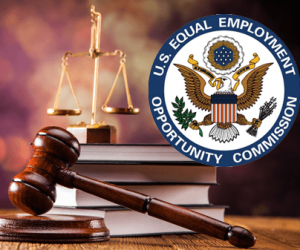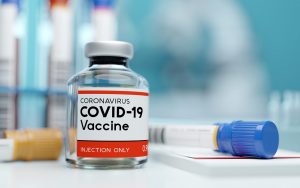As a healthcare and business law firm, we work with many healthcare employers and employees to resolve employment disputes. When disputes involve the civil rights of the employee, the Equal  Employment Opportunity Commission’s (“EEOC”) administrative process may be triggered. For instance, if an employee alleges discrimination based on sex or race under Title VII, the employee is required to file a Notice of Charge with the EEOC and allow the EEOC to review the charge for at least 180 days. After 180 days passes, the EEOC may issue the complainant-employee a Notice of Right to Sue, and then, the employee may file a federal lawsuit. Sometimes, however, the employee fears continued discrimination or retaliation from initiating the EEOC action. Can the employee bring an injunction in federal court enjoining the employer from discriminating or retaliating? This post intends to outline the Eleventh Circuit’s stance on this question. If you have questions regarding this blog post or employment matters, including unlawful discrimination in the workplace, you may contact us at (404) 685-1662 (Atlanta) or (706) 722-7886 (Augusta), or by email, info@hamillittle.com.
Employment Opportunity Commission’s (“EEOC”) administrative process may be triggered. For instance, if an employee alleges discrimination based on sex or race under Title VII, the employee is required to file a Notice of Charge with the EEOC and allow the EEOC to review the charge for at least 180 days. After 180 days passes, the EEOC may issue the complainant-employee a Notice of Right to Sue, and then, the employee may file a federal lawsuit. Sometimes, however, the employee fears continued discrimination or retaliation from initiating the EEOC action. Can the employee bring an injunction in federal court enjoining the employer from discriminating or retaliating? This post intends to outline the Eleventh Circuit’s stance on this question. If you have questions regarding this blog post or employment matters, including unlawful discrimination in the workplace, you may contact us at (404) 685-1662 (Atlanta) or (706) 722-7886 (Augusta), or by email, info@hamillittle.com.
At the outset, anti-discrimination laws generally provide equitable relief as a remedy. See, e.g., 42 U.S.C. § 2000e-5(g)(1). Further, the EEOC may move a federal court for an injunction pending the EEOC’s investigation. As recognized by federal courts, the EEOC taking such an intervening step requires many moving parts. In Drew v. Liberty Mut. Ins. Co., the Fifth Circuit painted a picture that that the complainant “would have to be fortunate enough for her complaint with EEOC so to divert the attention of the staff from its overwhelming burden of cases to distinguish it as one which demanded immediate attention, resulting in the preparation and filing of a suit by staff attorneys pending the usual course of processing the complaint before she would ever be able to act on her own to seek an end to the irreparable damage she was suffering. 480 F.2d 69, 74 (5th Cir. 1973). This begs the question—can the private employee move for an injunction pending the EEOC action?
Circuit courts are split on this issue. See David Tecson, Federal Remedies in Employment Discrimination Actions, at 6-7 (2007). The Eleventh Circuit precedent comes from the Fifth Circuit case in Drew, which is binding on the Eleventh Circuit because it was decided prior to 1981. In Drew, the court stated: “We conclude that in the limited class of cases, such as the present, in which irreparable injury is shown and likelihood of ultimate success has been established, . . . the individual employee may bring her own suit to maintain the status quo pending the action of the [EEOC]. . . .” Although circuits and even district courts within the Eleventh Circuit have disagreed with this stance, the present rule is that in limited circumstances, the employee may move for an injunction pending the EEOC action. As an example of disagreement, in McGee v. Puralator Courier Corp., 430 F. Supp. 1285, 1286-88 (N.D. Ala. 1977), the Northern District of Alabama disagreed with Drew in part because the EEOC requirement was a jurisdiction bar to bringing suit at that time. In 2019, the Supreme Court resolved the jurisdictional split on that issue and found exhausting the EEOC process was not a jurisdictional bar. Fort Bend Cnty., Texas v. Davis, 139 S.Ct. 1843 (2019). In 1984, the Eleventh Circuit, after splitting with the Fifth Circuit, summarily affirmed a Northern District of Georgia case applying Drew to a case involving a federal employee. Goza v. Bolger, 538 F. Supp. 1012, 1017 (N.D. Ga. 1982), aff’d, 741 F.2d 1383 (Table) (11th Cir. 1984). Although there is disagreement over the ability of an individual to bring a suit for injunctive relief pending an EEOC charge, it seems that it is available in limited circumstances in the Eleventh Circuit.
 The Centers for Medicare & Medicaid Services (CMS) has proposed a new rule that expands and enhances their authority to (A) deny enrollment, or (B) revoke Medicare billing privileges for healthcare providers and suppliers. The proposed rule would change Medicare enrollment, revocations, and overpayment settlements.
The Centers for Medicare & Medicaid Services (CMS) has proposed a new rule that expands and enhances their authority to (A) deny enrollment, or (B) revoke Medicare billing privileges for healthcare providers and suppliers. The proposed rule would change Medicare enrollment, revocations, and overpayment settlements. Total Health Law Blog
Total Health Law Blog


 Our healthcare and business law firm often represents medical practices, including primary care practices, specialty practices, and med spas, in the initial set up phase of their practice. A main question we are asked is: What’s the Corporate Practice of Medicine (CPOMs) Doctrine and does it mean I have to have an MSO? This is not always an easy question to answer. The CPOM doctrine essentially encapsulates the following sentiment: We don’t want non-physicians, including corporations, practicing medicine so non-physicians cannot own medical practices. There is quite a bit of nuance to add to that explanation, but that’s the main idea behind the doctrine. This post provides 3 initial questions to consider relating to the CPOM doctrine. If you have medical practice set up or CPOM questions or would like to discuss this blog post, you may contact our healthcare and business law firm at (404) 685-1662 (Atlanta) or (706) 722-7886 (Augusta), or by email,
Our healthcare and business law firm often represents medical practices, including primary care practices, specialty practices, and med spas, in the initial set up phase of their practice. A main question we are asked is: What’s the Corporate Practice of Medicine (CPOMs) Doctrine and does it mean I have to have an MSO? This is not always an easy question to answer. The CPOM doctrine essentially encapsulates the following sentiment: We don’t want non-physicians, including corporations, practicing medicine so non-physicians cannot own medical practices. There is quite a bit of nuance to add to that explanation, but that’s the main idea behind the doctrine. This post provides 3 initial questions to consider relating to the CPOM doctrine. If you have medical practice set up or CPOM questions or would like to discuss this blog post, you may contact our healthcare and business law firm at (404) 685-1662 (Atlanta) or (706) 722-7886 (Augusta), or by email,  Our healthcare and business law firm works with healthcare providers and businesses to
Our healthcare and business law firm works with healthcare providers and businesses to  For the better part of the last three years, many healthcare providers either voluntarily or by force have put many of the mandated HIPAA self-assessment audit requirements on the back burner. As has been seen most recently, that is all about to change…significantly.
For the better part of the last three years, many healthcare providers either voluntarily or by force have put many of the mandated HIPAA self-assessment audit requirements on the back burner. As has been seen most recently, that is all about to change…significantly. As a healthcare and business law firm, we have many clients who either are or wish to hire nurse practitioners around the country. Each state has very specific, and often complicated, laws and rules governing nurse practitioner practices. In 2020, Florida introduced a new law allowing certain nurse practitioners to practice autonomously, which Florida has sense been expanding on and clarifying. Herein is an overview of Florida’s autonomous practice law. If you have scope of practice or other
As a healthcare and business law firm, we have many clients who either are or wish to hire nurse practitioners around the country. Each state has very specific, and often complicated, laws and rules governing nurse practitioner practices. In 2020, Florida introduced a new law allowing certain nurse practitioners to practice autonomously, which Florida has sense been expanding on and clarifying. Herein is an overview of Florida’s autonomous practice law. If you have scope of practice or other  The COVID-19 pandemic has impacted employment in the United States. Now that the Country is reopening and people are returning to work, a question on everyone’s mind is: “Can my employer require me to get the vaccine”? The Equal Employment Opportunity Commission (“EEOC”) recently released guidance answering that question. This post intends to outline the EEOC’s position; it does not address the potential impact of state and local rules on this topic. If you have questions regarding this blog post,
The COVID-19 pandemic has impacted employment in the United States. Now that the Country is reopening and people are returning to work, a question on everyone’s mind is: “Can my employer require me to get the vaccine”? The Equal Employment Opportunity Commission (“EEOC”) recently released guidance answering that question. This post intends to outline the EEOC’s position; it does not address the potential impact of state and local rules on this topic. If you have questions regarding this blog post,  Employment Opportunity Commission’s (“EEOC”) administrative process may be triggered. For instance, if an employee alleges discrimination based on sex or race under Title VII, the employee is required to file a
Employment Opportunity Commission’s (“EEOC”) administrative process may be triggered. For instance, if an employee alleges discrimination based on sex or race under Title VII, the employee is required to file a  What is telehealth versus telemedicine? What laws and rules govern the practice of telemedicine? Has COVID-19 impacted telemedicine? Etc. This post intends to outline some of the rules and laws relevant to practitioners, including the impact of HB 307 on telehealth in Georgia. If you have questions regarding this blog post or
What is telehealth versus telemedicine? What laws and rules govern the practice of telemedicine? Has COVID-19 impacted telemedicine? Etc. This post intends to outline some of the rules and laws relevant to practitioners, including the impact of HB 307 on telehealth in Georgia. If you have questions regarding this blog post or  discrimination in the workplace, the law grants the employee a required process for investigating the matter through the Equal Employment Opportunity Commission (“EEOC”). The federal laws enforced by the EEOC apply to employers with 15 or more employees (20 in age discrimination cases) and make it
discrimination in the workplace, the law grants the employee a required process for investigating the matter through the Equal Employment Opportunity Commission (“EEOC”). The federal laws enforced by the EEOC apply to employers with 15 or more employees (20 in age discrimination cases) and make it  phase of policies centrally focused on advancing interoperability and patient access to health information.”
phase of policies centrally focused on advancing interoperability and patient access to health information.”